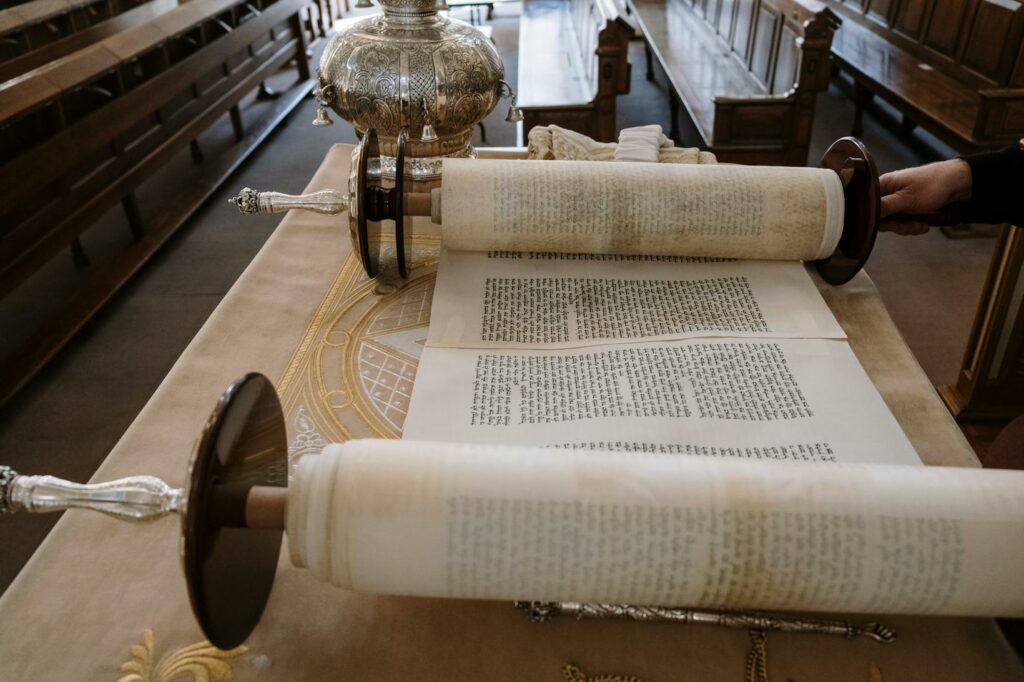In the realm of modern Jewish history, a tapestry of resilience, innovation, and cultural evolution unfolds. From the ashes of adversity to the heights of intellectual and artistic achievements, the narrative of the Jewish people in the contemporary era is a testament to endurance and adaptability. Exploring the multifaceted dimensions of modern Jewish identity offers a glimpse into a rich tapestry of traditions, struggles, and triumphs that have shaped the global landscape.
Amidst the complexities of the modern world, the story of Jewish history weaves together threads of diaspora experiences, religious transformations, and contributions to various fields such as science, literature, and politics. By delving into the dynamic interplay between tradition and modernity, one can uncover the intricate layers of a heritage that resonates across time and place.
Modern Jewish History
 Highlighting the resilience, innovation, and cultural evolution in modern Jewish history, this section delves into the journey of the Jewish people from adversity to intellectual and artistic achievements. It examines the diverse facets of modern Jewish identity, underscoring the traditions, struggles, and triumphs that have left an indelible mark on the global landscape. This narrative intertwines the diaspora experiences, religious transformations, and significant contributions to various fields such as science, literature, and politics, illustrating the dynamic interplay between tradition and modernity in Jewish heritage.
Highlighting the resilience, innovation, and cultural evolution in modern Jewish history, this section delves into the journey of the Jewish people from adversity to intellectual and artistic achievements. It examines the diverse facets of modern Jewish identity, underscoring the traditions, struggles, and triumphs that have left an indelible mark on the global landscape. This narrative intertwines the diaspora experiences, religious transformations, and significant contributions to various fields such as science, literature, and politics, illustrating the dynamic interplay between tradition and modernity in Jewish heritage.
Major Events and Movements
Industrialization and Rise of Zionism 
The industrial revolution in the 19th century brought significant changes to Jewish communities worldwide. Jews began to move from traditional occupations into manufacturing and commerce, fostering economic growth and social mobility. This period also saw the emergence of Zionism, a movement advocating for the establishment of a Jewish state in the historic land of Israel. Led by figures like Theodor Herzl, Zionism gained momentum, laying the groundwork for the eventual creation of the modern state of Israel.
Holocaust and World War II
World War II marked one of the darkest chapters in modern Jewish history with the Holocaust, the systematic genocide of six million Jews by the Nazis. The atrocities committed during this period had a profound impact on Jewish communities, leading to unimaginable loss and trauma. The Holocaust serves as a poignant reminder of the dangers of anti-Semitism and the importance of remembrance and education in preventing such atrocities from happening again.
Notable Figures and Influential Leaders
Theodor Herzl and the Zionist Movement
Theodor Herzl, a key figure in modern Jewish history, founded the Zionist Movement in the late 19th century. Promoting the establishment of a Jewish state in Israel, Herzl’s vision aimed to provide a homeland for the Jewish people, ensuring their security and continuity. His seminal work, “Der Judenstaat” (“The Jewish State”), published in 1896, sparked widespread support for the Zionist cause. Herzl’s advocacy laid the foundation for the eventual founding of the State of Israel in 1948, fulfilling his enduring legacy as a pivotal leader in the quest for Jewish self-determination.
Impact of Modern Jewish History on Society
 The impact of modern Jewish history on society has been profound and far-reaching, shaping various aspects of cultural, social, and political domains across the globe. From the resilience displayed during challenging times to the contributions in intellectual and artistic spheres, the Jewish people have left an indelible mark on society.
The impact of modern Jewish history on society has been profound and far-reaching, shaping various aspects of cultural, social, and political domains across the globe. From the resilience displayed during challenging times to the contributions in intellectual and artistic spheres, the Jewish people have left an indelible mark on society.
- Cultural Diversity: Modern Jewish history has enriched cultural diversity by introducing unique traditions, literature, and artistic expressions into the global cultural mosaic. Jewish contributions to music, literature, art, and cinema have resonated with audiences worldwide, enriching the cultural tapestry of humanity.
- Social Progress: The lessons learned from Jewish historical experiences have influenced social progress, advocating for inclusivity, social justice, and human rights. The Jewish pursuit of social justice has inspired movements aimed at addressing inequality, discrimination, and promoting equitable treatment for all members of society.
- Political Influence: The political landscape has been significantly influenced by modern Jewish history, particularly through the establishment of the State of Israel in 1948. The formation of Israel marked a pivotal moment in Jewish self-determination, impacting regional geopolitics and fostering debates on nationalism, statehood, and identity.
- Interfaith Dialogue: Modern Jewish history has facilitated interfaith dialogue, fostering understanding, respect, and cooperation among diverse religious communities. Initiatives promoting interfaith dialogue have emerged, enhancing religious tolerance and promoting peace-building efforts globally.
- Educational Legacy: The educational legacy of modern Jewish history encompasses intellectual achievements, academic excellence, and scholarly contributions across various fields. Jewish thinkers, scientists, and educators have significantly influenced academia, contributing to advancements in science, medicine, philosophy, and technology.
The multifaceted impact of modern Jewish history continues to resonate in contemporary society, emphasizing the significance of historical narratives, cultural heritage, and collective memory in shaping a more inclusive and interconnected world.



